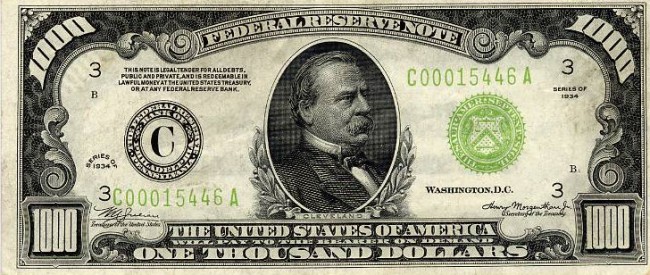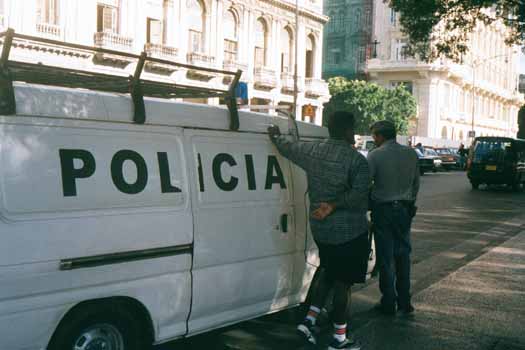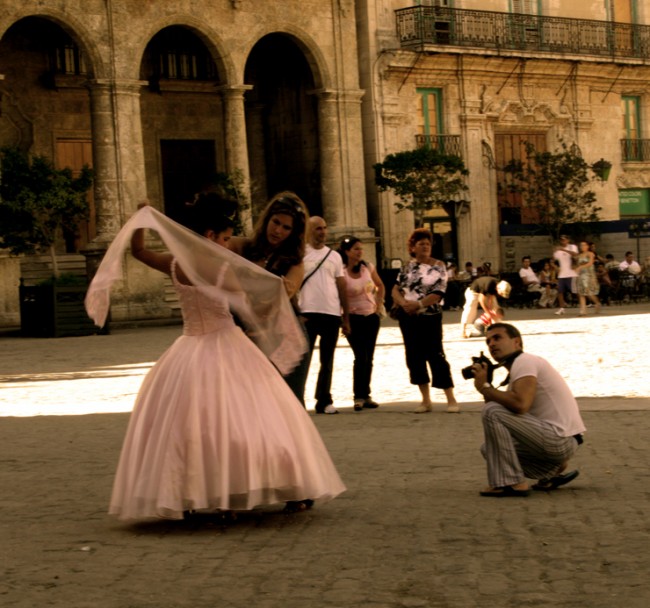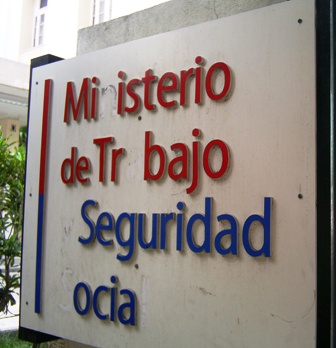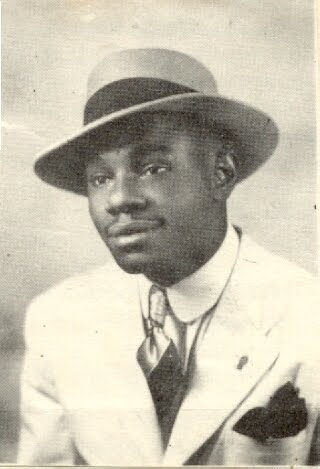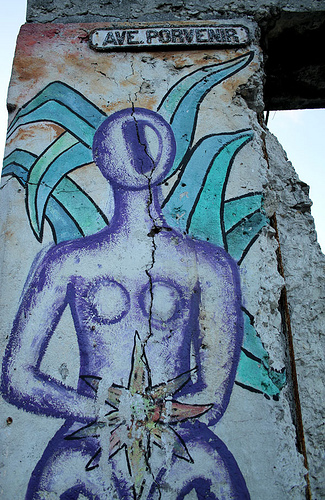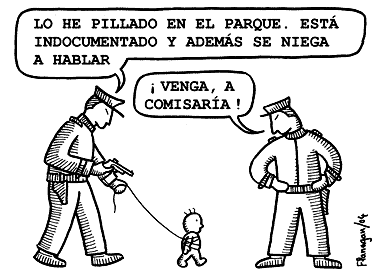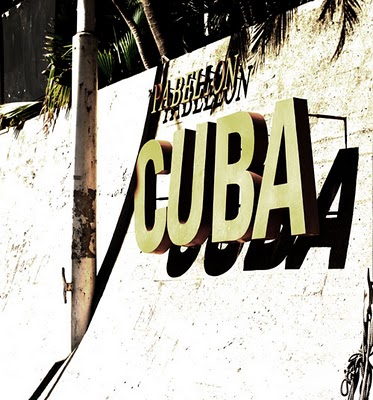 The likely, though unconfirmed, flight to the U.S. of the former president of Alimport, the national company that monopolized imports on the Island, is the new owner of a big label that comes to us these days from the largest of the Antilles. And even without absolute certain verification, the fact has occupied the front pages of major newspapers and has been reviewed by bloggers, journalists and fans of that inexhaustibly rich subject: Cuba.
The likely, though unconfirmed, flight to the U.S. of the former president of Alimport, the national company that monopolized imports on the Island, is the new owner of a big label that comes to us these days from the largest of the Antilles. And even without absolute certain verification, the fact has occupied the front pages of major newspapers and has been reviewed by bloggers, journalists and fans of that inexhaustibly rich subject: Cuba.
And no wonder. Mr. Pedro Alvarez Borrego long presided over the Chamber of Commerce, for twenty years he held the thorny title of vice minister, in short: it is a story about the highest ranking official who’s hotfooted it out of the country since 2002, when Alcidiades Hidalgo, the deputy foreign minister, looked for protection in the arms of — until then — his worst enemy.
But if it weren’t for the prominence of this character, and for the journalistic hay that could be made if he were eventually to be found on U.S. soil, the case wouldn’t merit more than a few lines in the local press. Why? Because to talk about officials, public people, athletes, and good Cuban party members crossing the Straits of Florida, has gone from being surprising news to a contemporary tradition.
It’s enough to do the numerical recount which I, short on time, beg off doing this time.
Especially, because in my opinion the most interesting thing to turn the spotlight on — in this escape worthy of a nighttime thriller, disguised as a woman, they say, how embarrassing to State Security — is the ethical dilemma this Cuban immigrant poses to the United States. How laudable is it to shelter and protect, in a true democracy, someone who up until the previous day showed himself to be your sworn enemy, supporter of an antagonistic system?
A lovely and perhaps apocryphal anecdote in the History of Cuba refers to the event when the Indian, Hatuey, was tied to the stake and he asked the priest, who offered him holy communion so that he could go to heaven, if the Spaniards would be going to the same place. After hearing a reply in the affirmative, the aboriginal rebel answered, “Then I do not want to go to heaven.”
One might ask, then, of those who suffered most among the suffering, of Cubans lacerated by intolerance, of those who had to mourn relatives imprisoned or buried, how it has been for them, all these years, to know that many of those who yesterday supported the Cuban system, who perfected the pillars of the anti-democratic government, now roam safely in the same city that gave them the shelter they needed.
It is truly complex: under the same roof, on this side, so many oppressed and so many oppressors coexist, that only in a system of strict laws, only in a society of plural thinking like this, could a climate of general peace be maintained.
Because while we can find on the streets of Miami simple former leaders of the Communist Youth Union — I met one of those myself last Saturday, who identified himself, even though I didn’t ask, offering no justification for his former life — poor peons in the Cuban game, we also stumble upon the fat cats of the true repression, with essential names without which, I am sure, the darkest face of the government of my country would not have been so dark.
So, one more time: What justice is there in offering absolute protection to the same people who moments before you were fighting against, when they decide, from opportunism or necessity, to pass over to the side of the enemy?
And here’s another essence of the conflict, the dirtier and more degrading background: rarely do these characters cross the geographical and ideological line unless circumstances force them to. They rarely behave as civic leaders, as Democrats who flee a country where they tried to transform reality, and failed. It doesn’t happen.
In the vast majority of cases it is the comfortable guardians of the throne who only move when the Island’s powers-that-be withdraw their flattery. When they lose their privileges, their furnished mansions, their vacations in Cancun and Varadero, and when they are returned to ordinary lives, now with the suffocating scarcities of the average Cuban.
Another share of them, smaller but if anything more reprehensible, are those who — like our old importer Pedro Álvarez — vanish in Cuba and show up in the “establishment” only when a monumental scandal is about to blow up on them.
Here it’s not even about the newly pursued through political transmutation; it’s not about the names that until yesterday wanted to donate their blood to transfuse the Revolution, and then, when the Revolution sent them the bill they wanted to drain its blood with their eye teeth. None of that. They are, simply, those who steal, lie, falsify from their lofty positions while ordering the people to sacrifice, to be frugal, and when they are discovered
they put on wigs and look for shelter in other countries of the globe.
Me, I don’t know too much about the former president of Alimport, I didn’t hear his voice or know of his maneuvers to negotiate with the United States during his commercial exercise, but I do know one thing: no one in Cuba scales the heights to such positions — ministers, presidents — without having proved themselves, with a steely unconditionality, to be absolutely submissive to the precepts of the Communist Party and its rulers. And that is not achieved with a low-profile militancy.
But, one fine day they jump over to Florida and the ocean in between washes away all their records. Bad, very bad that. And the TV programs, the well-known faces of the Miami media treat them with the respect codified in the journalism handbook, forgetting that the journalism handbook also speaks of ethics as an indispensable principle.
But as the ratings soar astronomically, as they have high levels of information, obtained by their chameleon-like attitude, not only do they get shelter and emotional stability, they get a lot of hard cash. Very hard.
Is there a dignified, an admirable face in this perspective swamp? Yes: even in this city, in this Miami of light and Latinos, swarming freely with well-known names from the pro-communist militancy, pro- Fidel. Public figures with radio programs, cultural magazines, think tanks and political platforms defending the Cuban Revolution and its ideological precepts. And none of them are imprisoned, expelled, or left without work. The Tyronians coexist with the Trojans, Persians with Spartans, in a society that could use some perfecting, but one vastly superior to that from which so many left.
Then, after these admissions they grit their teeth in disgust. Behind the appearances on camera like poor officials following orders, never dictating them, lies a pluralistic and tolerant teaching that, as long as it does not involve crimes against humanity — which also exist, a controversial issue — is honorable and worthy of preservation.
But to the next ones thrown out of office who will be coming, and those who have already arrived; to the next phonies who screamed “Socialism or Death” in Cuba and today can’t live without McDonald’s; to those who change their jerseys to play at wiping the mind clear and posing as victims when in reality they were hard-core victimizers, a clarification in the name of so many honest and consistent people who seek exile as oxygen to survive, and not as a shield against their excesses: Never forget that, like Rome, America pays the traitors, but despises them.
January 10 2011


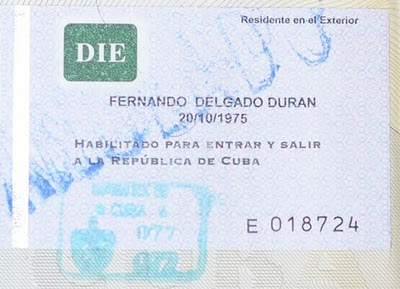
 The year 2011 has begun and Cuba continues to be prey to a dilemma; a government of more than half a century, led by the same old men, who have given themselves another opportunity to correct their mistakes before leaving this world. So the president of the State Council, Raul Castro, expressed in his most recent speech.
The year 2011 has begun and Cuba continues to be prey to a dilemma; a government of more than half a century, led by the same old men, who have given themselves another opportunity to correct their mistakes before leaving this world. So the president of the State Council, Raul Castro, expressed in his most recent speech.